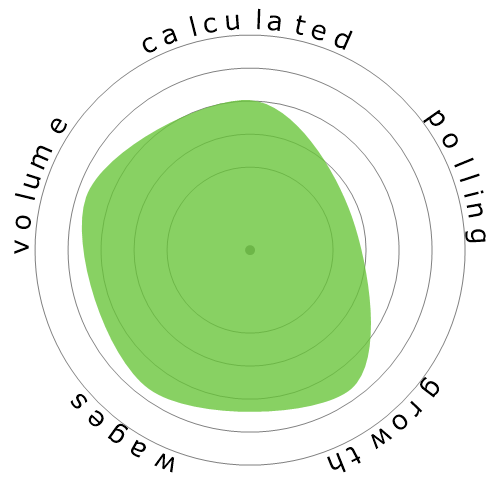Computer Systems Engineers/Architects
Where Would You Like to Go Next?
Or, Explore This Profession in Greater Detail...
Employment data isn't available specifically for this occupation from the Bureau of Labor Statistics, so we are using the data from Computer Occupations, All Other.


What does this snowflake show?
What's this?
We rate jobs using four factors. These are:
- Chance of being automated
- Job growth
- Wages
- Volume of available positions
These are some key things to think about when job hunting.
People also viewed
Calculated automation risk
Low Risk (21-40%): Jobs in this level have a limited risk of automation, as they demand a mix of technical and human-centric skills.
More information on what this score is, and how it is calculated is available here.
User poll
Our visitors have voted they are unsure if this occupation will be automated. However, employees may be able to find reassurance in the automated risk level we have generated, which shows 34% chance of automation.
What do you think the risk of automation is?
What is the likelihood that Computer Systems Engineers/Architects will be replaced by robots or artificial intelligence within the next 20 years?
Sentiment
The following graph is shown where there are enough votes to produce meaningful data. It displays user poll results over time, providing a clear indication of sentiment trends.
Sentiment over time (yearly)
Growth
The number of 'Computer Occupations, All Other' job openings is expected to rise 10.8% by 2033
Updated projections are due 09-2025.
Wages
In 2023, the median annual wage for 'Computer Occupations, All Other' was $104,920, or $50 per hour
'Computer Occupations, All Other' were paid 118.3% higher than the national median wage, which stood at $48,060
Volume
As of 2023 there were 437,170 people employed as 'Computer Occupations, All Other' within the United States.
This represents around 0.29% of the employed workforce across the country
Put another way, around 1 in 347 people are employed as 'Computer Occupations, All Other'.
Job description
Design and develop solutions to complex applications problems, system administration issues, or network concerns. Perform systems management and integration functions.
SOC Code: 15-1299.08
Comments (5)
Definitely AI is going to Impact On system Engineer Role also by Reduce 50% of time and Cost. So that It will Increase the Efficiency of the Role & reduce team members also slightly.(5 to 10%)
Reply to comment